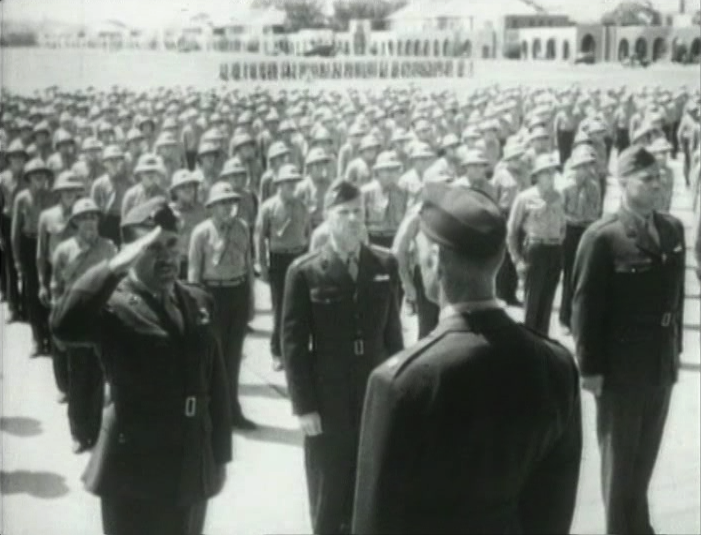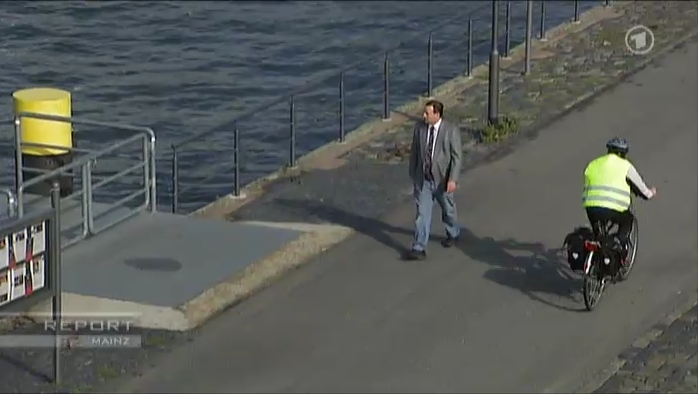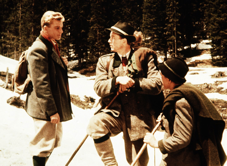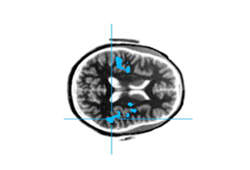The research projects bundled here represent a collaborative network. We study different objects from varying perspectives, but are nevertheless working towards a common aim. We’re interested in how audiovisual forms move viewers emotionally and how they allow viewers to understand and experience the world.
Individual projects are investigating, for example, the following questions:
 |
→ How do war films mobilize their viewers? |
 |
→ How do documentaries and TV news programs design dynamic audiovisual forms out of their verbal arguments and content? |
 |
→ By which means do German Heimatfilme attempt to shape a feeling of community? |
 |
→ Can we find empirical proof that viewing certain stereotypes of audiovisual staging is linked to parallel models of psychological processing? |
We aim to transfer film theoretical models into concrete, systematic methods and analytical procedures—an "empirical media aesthetics" that gives highest priority to the mutual development of research methods and forms of presentation.
We assume that that which we call “perception,” “feeling” and “understanding” are shaped in time and space as an interplay of intensities: atmosphere unfolds, thoughts arrive suddenly, feelings creep up, etc. Film and other audiovisual media are able not only to express this in images and sound, but also to let their viewers experience it directly.
EXPRESSIVE MOVEMENT
|
We use the concept of expressive movement (Ausdrucksbewegung) in order to thoroughly investigate this complex. With this term we mean to stress the processual character of how viewer emotion and comprehension is shaped by the audiovisual dynamics of movement. The form of images’ movement through time is analyzed and understood as having a direct connection to viewer emotions. |
| |
EMBODIMENT
METAPHOR
|
Different research groups are exploring, among other questions, ways of demonstrating how and determining the extent to which embodiment is the basis of experiencing and understanding film. We are examining the ways in which our physical, corporeal existence, our bodily experiences and forms of expression—the basis of all human communication and thought—also informs audiovisual media. Films gesticulate, show and perform the production of our ways of speaking and thinking—for example in metaphors—in a manner that can be compared to the gestures we make with our own body and understand in the gestures of others as expressive movement. |
| |
GENRE CINEMA
POETICS OF AFFECT
|
Genre cinema is an ideal object for our research because, like no other group of films, it aims to awaken, speak to and meet the expectations of particular viewer emotions. This dramaturgy of emotions or poetics of affect by definition relates to those emotional and value systems that are assumed to be shared at the time and place the films were made. A stringent analysis of these films can therefore also help answer questions posed by sociology and the history of emotions. |
| |
EXPRESSIVE
MOVEMENT IMAGES
|
Our goal is to describe the dynamic interplay of the many means of forming audiovisual media in such a way that the specific dynamic quality of its form as a whole is at the center. Our collaborative project can thus be described as qualitative empirical media analysis. We believe that this is the only basis from which it is possible to meaningfully compare larger numbers of films in order to, for example, examine historical transformation within an entire cinematic genre or review theories on affective viewer responses to film from a natural science perspective.
Finally, through the close collaboration of diverse projects we aim to improve our methods of analysis so that the qualitative description of the temporal unfolding of expressive movement images can be expanded and applied to any number of interdisciplinary fields. |
________________________
Picture Credits
Picture 1: Still from GUNG HO!, Ray Enright, USA 1943
Picture 2: Still from REPORT MAINZ (ARD, broadcast on10/20/2008)
Picture 3: Still from DER FÖRSTER VOM SILBERWALD, Alfons Stummer, A 1954







